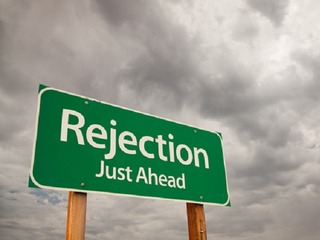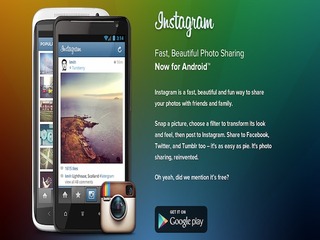
Snapchat is finding itself in an enviable position right now.
The two-year-old company is fielding offers left and right, including $3 billion from Facebook and $4 billion from Google. Interest like that in a company doesn’t happen every day.
But Snapchat, which is reportedly about to raise a few more hundred million in funding, turned down all of these offers, apparently with the hope of potentially getting even more once its new funding comes through.
Of course, there are two ways Snapchat could go. Either it will be the next Facebook, which would make its purchase well worth it in the long run. Or it could find itself, as I believe it will be, becoming a short-lived fad that teens get bored with before moving onto the next big thing.
There really is no way to tell with these things. The best you can do is take a look at some examples of companies that both rejected, and some that accepted, big offers, and how those deals turned out.
Companies that turned the deal down
Let’s start with a couple of big names that found themselves in the same position as Snapchat, and made the same decision not to sell.
When talking about companies that received repeated buyout offers, Facebook is the most obvious place to start.
After all, this is a company that, between its launch in 2004 and IPO in 2012, had 11 separate offers to be purchased. I guess when that many people want you, some part of you has to know you are going to be successful.
The officers included a $75 million offer from Viacom in 2005, which came back multiple times before they finally offered to buy Facebook for $1.5 billion in 2006. Yahoo under the leadership of Terry Semel, also made multiple offers, including $1 billion in 2006, and then even more later that same year.
But the biggest offer of all was a startling $15 billion from Microsoft in 2007. When Mark Zuckerberg rejected that offer, Microsoft instead decided to invest in the company, putting $240 million for a 1.6% stake in Facebook. This valued the company at $15 billion, the same amount that Microsoft had wanted to pay.
And, of course, we all know how the rest of this story turned out. Facebook went public, and had a rocky first year, before finally getting into its advertising groove and turning itself around.
The company now has a market cap of $113.73 billion. So it is no stretch to say that it was definitely a smart move on both Zuckerberg’s, and the company’s, part to not sell.
But turning down an offer to spend a lot of money on you does not always wind up being the wisest move. For a look at the opposite of Facebook, take a look at what happened to Groupon.
The daily deals site was so close to being bought by Google for $6 billion back in 2010, before turning down the offer in favor of an IPO.
At the time, that may have seemed like a smart move. The company was expecting to see a $2 billion in revenue that year, and just the next month, it raised a whopping $950 million in funding, which put its valuation at $4.75 billion. It obviously felt that there was more money in going public than becoming part of Google.
But there was already trouble on the horizon. The company was generating tons of revenue, but was funneling all of that money, and then some, into sky-high marketing costs. In the first nine months of 2011, Groupon generated $1.1 billion in revenue while incurring a loss of $214 million.
Groupon did eventually go public, but its IPO was famously troubled. It turned out the company was lumping gross billings in with revenue, which artificially puffed up its numbers. So, only a few months before the IPO, it was forced submitted a restatement to its initial filing to go public that said it would change what it counted as revenue from gross to net.
Not only did this embarrass the company, it also effectively cut its reported revenue in half.
And then things really turned sour for Groupon. The daily deals space fell off a cliff, losses began piling up, and eventually company founder and CEO Andrew Mason was fired.
But here’s the kicker: right now the company has a market cap of $6.34 billion, or basically what Google was willing to pay for it two years ago. In this case, Groupon probably would have been better off just taking the deal.
I guarantee you Andrew Mason would be.
The ones that accepted the deal
So now that we’ve seen the example of two companies that decided to reject the deal, what about those that accepted it?
One company that took the big offer right away was Instagram, which was bought by Facebook for $1 billion.
After launching in October 2010, the app was an instant hit, reaching one million users only two months later. After it launched its Android app in April 2012, the same month that Facebook announced that it was buying the company, Instagram saw its user numbers jump by 10 million in 10 days. It cracked the top 10 fastest growing sites in the United States for March, jumping 19% in a single month.
In April, Instagram’s unique visitors shot up 78% to 14.5 million, from 8.2 million unique visitors in March, making it the fastest-growing Web property.
And the service is still growing quickly. Instagram hit 100 million users in February of this year, and then150 million in September. And it is now the number 12 free app on iOS and number 2 on Android.
All in all, a move on Facebook’s part that probably could not have turned out better. But it easily could have gone the other way. Even for those companies that do agree to be purchased, there is no guarantee of success.
Take Bebo, the social network, which was bought by AOL for $850 million in 2008. This was supposed to invigorate AOL with a big boost of social media.
But the fast rise of other networking sites, especially Facebook, quickly cast Bebo into the shadows. Add to that the fact that Bebo was unprofitable and did not have much traction outside of the U.K. and Ireland. In short, AOL jumped the gun and bought a company for a lot of money that had not proven its long term viability.
When AOL sold the company off two years later to Criterion Capital Partners for less than $10 million, The BBC’s technology correspondent Rory Cellan-Jones called the purchase “one of the worst deals ever made in the dotcom era.”
The deal was so bad, in fact, that it cost AOL CEO Randy Falco his job.
As for Bebo, Criterion sold it back to founder Michael Birch earlier this year for $1 million.
And then, of course, there is Zynga and OMGPOP.
OMGPOP had one hugely successful game on its hands: Draw Something, which was downloaded 35 million times in its first six weeks alone after its debut. This prompted Zynga to buy OMGPOP for $180 million last March.
And the purchase initially looked like a winner when Draw Something became the top paid app in the iTunes store in April, but things quickly fell apart after that. The game’s numbers fell off severely and the game lost seven million users from May to June alone.
A year later, OMGPOP was out of business and Zynga was hit hard. Once again, buying an unproven property for a lot of money made the ceiling fall in on everybody.
The verdict
So I just wrote all of that, and you just read it, for me to tell you that I honestly don’t know if Snapchat should have taken the deal or not.
As I said earlier, the outcome on these types of deals is mixed. Which, like, of course they are. If it was easy to tell which companies would do well, and which ones would fail, then everyone would only buy the ones that they knew would absolutely be a success.
Also keep in mind that there is no way to tell how these companies would have done if they had a parent company backing them.
For example, if Facebook had a company like Google or Microsoft dictating their every move, would they have still been allowed to implement the changes and features that have led to their success?
Or in the case of a company like Instagram, would it have peaked and started to decline if it had decided to keep going on their own and did not get the access to Facebook’s over one billion users?
Only someone with a crystal ball could tell you that.
(Image source: http://wonderopolis.org)

























